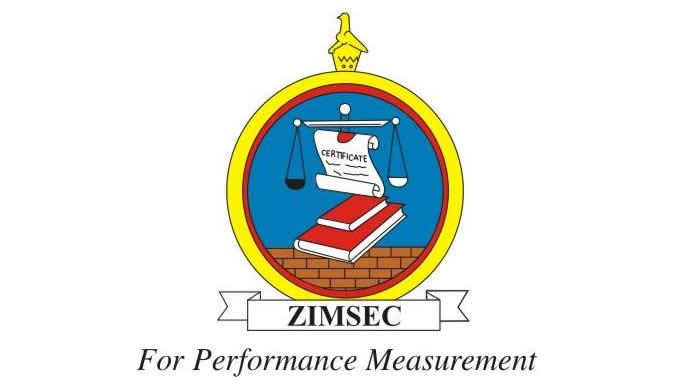News / National
Public demand tough jail terms for Zimsec exam leaks
28 Aug 2025 at 05:52hrs |
1 Views

Bulawayo residents have called for a mandatory 10-year prison sentence for Zimbabwe School Examinations Council (Zimsec) employees found guilty of leaking or facilitating the leakage of examination material.
The proposal, made during a public hearing on the Zimsec Amendment Bill at a Bulawayo hotel yesterday, was tabled by Ms Sehlile Thebe and received unanimous support from participants.
"A question paper cannot suddenly find its way into a teacher's or learner's phone. The source is Zimsec. I, therefore, propose a mandatory 10-year prison sentence for officials found complicit," said Ms Thebe.
Her sentiments were echoed by Ms Monalisa Dube, who said leakages often originate from within Zimsec. "We are not condoning those who spread the papers, but closing the source is key. I support the 10-year sentence, if not more," she added.
The hearing was led by Zaka North legislator Cde Ofias Murambiwa, chair of the Parliamentary Portfolio Committee on Primary and Secondary Education, which is conducting consultations in five provinces. He explained that Parliament is mandated by Section 141 of the Constitution to involve the public in law-making processes.
"The Zimsec Act was enacted in 1994, and the Ministry of Primary and Secondary Education felt a lot of changes have taken place in the education sector since then. As such, there is a need to align the Act with these changes," Cde Murambiwa said.
Zimsec, responsible for setting, administering and marking national exams, has struggled for years with recurring exam paper leaks that have undermined the credibility of national examinations. The proposed amendments to the Act are expected to tighten governance, accountability and operational standards.
Committee member Ms Ellen Shiriyedenga told delegates that the Amendment Bill carries nine key proposals, including changing the title of Zimsec's head from "Director" to "Chief Executive Officer," a move aimed at empowering the office. Participants also recommended that the CEO's status be elevated to match that of a university vice-chancellor.
Another proposal under discussion would empower Zimsec to deregister examination centres that fail to meet standards. While some participants supported the measure, others warned it could give Zimsec excessive power without providing an appeal process. "The proposal gives Zimsec too much arbitrary power. There must be a platform for appeal," said Mr Joseph Mutodza.
Ms Dube added that Zimsec should provide resources to centres to ensure compliance rather than punishing them through deregistration.
Participants also pushed for broader representation on the Zimsec board. While the Bill maintains 15 board members, residents suggested including teacher colleges, the National Association of Secondary Heads (Nash), and the National Association of Primary Heads (Naph), alongside representatives from both public and private universities.
Mr Morgan Moyo stressed the importance of inclusivity, saying: "Other institutions, like teacher colleges, ought to have representation on the Zimsec board." Another resident proposed that board membership should reflect regional balance.
The proposal, made during a public hearing on the Zimsec Amendment Bill at a Bulawayo hotel yesterday, was tabled by Ms Sehlile Thebe and received unanimous support from participants.
"A question paper cannot suddenly find its way into a teacher's or learner's phone. The source is Zimsec. I, therefore, propose a mandatory 10-year prison sentence for officials found complicit," said Ms Thebe.
Her sentiments were echoed by Ms Monalisa Dube, who said leakages often originate from within Zimsec. "We are not condoning those who spread the papers, but closing the source is key. I support the 10-year sentence, if not more," she added.
The hearing was led by Zaka North legislator Cde Ofias Murambiwa, chair of the Parliamentary Portfolio Committee on Primary and Secondary Education, which is conducting consultations in five provinces. He explained that Parliament is mandated by Section 141 of the Constitution to involve the public in law-making processes.
"The Zimsec Act was enacted in 1994, and the Ministry of Primary and Secondary Education felt a lot of changes have taken place in the education sector since then. As such, there is a need to align the Act with these changes," Cde Murambiwa said.
Committee member Ms Ellen Shiriyedenga told delegates that the Amendment Bill carries nine key proposals, including changing the title of Zimsec's head from "Director" to "Chief Executive Officer," a move aimed at empowering the office. Participants also recommended that the CEO's status be elevated to match that of a university vice-chancellor.
Another proposal under discussion would empower Zimsec to deregister examination centres that fail to meet standards. While some participants supported the measure, others warned it could give Zimsec excessive power without providing an appeal process. "The proposal gives Zimsec too much arbitrary power. There must be a platform for appeal," said Mr Joseph Mutodza.
Ms Dube added that Zimsec should provide resources to centres to ensure compliance rather than punishing them through deregistration.
Participants also pushed for broader representation on the Zimsec board. While the Bill maintains 15 board members, residents suggested including teacher colleges, the National Association of Secondary Heads (Nash), and the National Association of Primary Heads (Naph), alongside representatives from both public and private universities.
Mr Morgan Moyo stressed the importance of inclusivity, saying: "Other institutions, like teacher colleges, ought to have representation on the Zimsec board." Another resident proposed that board membership should reflect regional balance.
Source - The Chronicle
Join the discussion
Loading comments…



























